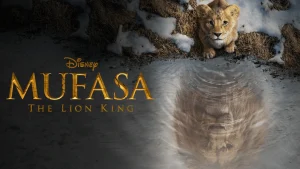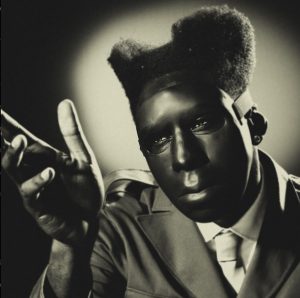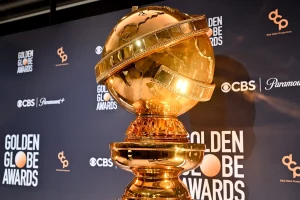Crossword Puzzles: Stand the Test of Time
November 22, 2021
Crosswords are the perfect hobby to destress and take your mind off worries, while keeping your brain active.
The first crossword looked a lot different than it does today. It was published in The New York Times on December 13, 1913 and it was called a “word-cross.” It was shaped like a diamond with a diamond cut out in the middle and the numbers went around the edge. From there, the puzzles continued to develop into the ones we have today. The difficulty depending on the day of the week began when Will Shortz became the Crossword Editor for The New York Times in 1993. He also took the more straight-forward puzzles and added more word play to the clues and answers.
My dad got me into doing crosswords. For as long as I can remember, in the evenings after dinner my dad would often get a crossword puzzle and sit with me in front of the TV. He would do the crossword to relax while I watched a show. When he started a puzzle, I would look over his shoulder and find the one or two pop-culture reference questions that I could answer. He would give me questions that he thought I had a chance of getting correct. As I started to get better at them, I started to do them on my own more frequently. Now, we don’t always have much time in the evenings, but if we do, we sit down to dinner with a crossword between us and work together to complete it.
I think crosswords are relaxing. I have trouble just sitting still and doing nothing. My brain doesn’t shut off, I just keep thinking. I can use my mind to do crosswords when I want to relax. It doesn’t take much energy and it is something low-stress that I can focus my mind on. It makes me feel smart even when I fill in a really easy question. I also get a feeling of accomplishment when I figure out the theme (not all crosswords are themed).
If you are having a bad day, crosswords can improve your mood! They take your mind off anything that is worrying you and refocus it on the clues.
“You get involved in this activity, you block out everything else in the world, and when you’re done, you’re relaxed and refreshed, and ready to go back to life,” Shortz says in Inside The Times podcast.
It also feels rewarding when you can fill in an answer or figure out the response for a tricky clue.
Crosswords are good for your brain! They make you think about words and ideas in different ways. They expand your creativity by forcing you to think about all different possible ways to answer a clue. Crosswords can improve your memory.
Shortz also shares “…I think New York Times readers are smart, have the inquiring minds, they like to know things, and they do know things…”
A Feb. 1, 2020 article from AAA says, “Science shows that solving crossword puzzles is good for mental health by improving a person’s memory and other intellectual skills.”
That same article quotes a study (from 2017) from the University of Exeter Medical School and Kings College London that says, “…the more regularly participants engaged with word puzzles, the better they performed on tasks assessing attention, reasoning and memory.”
Another benefit is that it keeps your brain up to 10 years younger. Cognitive activities like crosswords have also been known to lower the risk of diseases like Alzhimers and dementia.
Crosswords are also fun! Some crosswords are themed, meaning all of the longest across clues have something connecting them. These similarities could be different versions of a word, synonyms, or a topic like “food.” Also, crosswords contain both young and old references so they stay relevant for all ages. Even teens can find a pop-culture or slang reference that they know.
Crosswords are not as difficult as they seem, and like all hobbies you can get better at doing them with practice. Helpful hints for beginners: The New York Times crosswords range in difficulty based on the days of the week. Mondays are the easiest with the most straight forward questions and less wordplay. Saturdays are the hardest with the most word play and trick questions. Sunday puzzles are bigger than the other days but are usually mid-week difficulty. You do not need to know a ton of random information to be good at crosswords. Although it is helpful to have a good vocabulary, most clues are written in a way that hints to the answer, sometimes through word play or double meanings.
Fun Fact: President Bill Clinton was an avid Crossword puzzle solver, he could solve 5-7 of them a day while he was on the campaign trail.
Shortz also explains, “…With a crossword puzzle or any other human-made puzzle, you see the process through, from start to finish, and when you fill in the last square of a crossword, sudoku, or kenken, or whatever, it gives you an immense feeling of satisfaction. You’ve put the world in order, you’ve conquered something, and it’s a feeling of elation and you immediately want to do another.”
Learning how to read Crosswords clues and tips and tricks to solving them:
How to Solve the New York Times Crossword
Great beginner Monday and Tuesday puzzles to do online or print:
11 Remarkable Crosswords for New Solvers
Sources Used:
https://www.businessinsider.com/first-crossword-puzzle-that-ran-100-years-ago-2013-12








Sahana • Dec 1, 2021 at 7:22 am
I like how you shared the benefits of crossword puzzles for you and how they might benefit others. I agree that crosswords are super relaxing and they can definitely improve your mood.